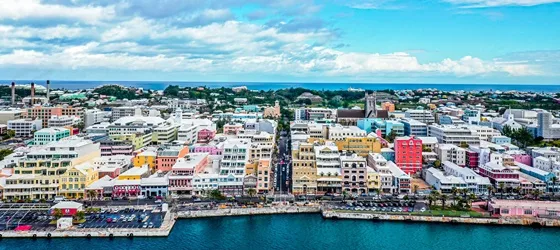It's a heartbreaking day for the fight for equality. The highest court in the British territories has unfortunately chosen to support discrimination against same-sex couples, perpetuating an unjust system that denies basic human rights.

In 2017, the Bermuda Supreme Court legalized marriage equality thanks to a challenge from two gay men.
But it only took one year for the law to be repealed. The Bermudas legislators have taken a step in the wrong direction by rescinding the same-sex marriage law in 2018, making Bermuda the first country in the world to repeal a same-sex marriage law.
So instead, the legislators have passed a law legalizing same-sex domestic partnerships that allows same-sex couples legal recognition but especially prohibits them from marrying.
Luckily, the case didn't end there. A challenge was launched against this domestic partnership law (or marriage equality ban) and the highest court in Bermuda has ruled again that LGBTQ couples are eligible for marriage.
But the government has appealed this decision to the Privy Council in London, which is the highest appeals court for all British territories, including Bermuda.
I'm sorry to say that we were rather optimistic about the decision of the Privy Council on London following all these approvals for same-sex marriage across the UK over the last few years.
The LGBTQ community was dealt a devastating blow a couple of weeks ago when the Privy Council of London sided with Bermuda's government.
"Our supporters often say 'love wins.' This time it didn't," said Roderick Ferguson, lead co-plaintiff in the legal case against the ban, in a statement by LGBTQ advocacy group OUTBermuda. "Our work as a society is not done until everyone's humanity is recognized both in law and in life."
This decision is a setback for LGBTQ rights in Bermuda. And this also affects the LGBTQ community of the Cayman Islands, who recently began fighting for same-sex marriage too.
In fact, as the fight for marriage equality heated up in Bermuda, it also spilled over into the neighboring Cayman Islands, which is also a British overseas territory.

Chantelle Day on left and Vickie Bodden Bush (Photo: Taneos Ramsay)
Chantelle Day and Vickie Bodden Bush have launched a court challenge in 2018 to get their union recognized after they were denied a marriage license.
In March 2019, the Cayman Grand Court ruled in favor of them, ruling that the marriage equality ban represented a violation of the law.
Unfortunately, a court of appeal has repealed the decision a few months later, while urging the government to create a legal status equal to marriage for LGBTQ couples.
As the Cayman Islands government did nothing, Chantelle Day and Vickie Bodden Bush sent their case to the Privy Council in London. You know what happened next: The Privy Council sided with discrimination against same-sex couples.
The decision by the Privy Council in London to oppose same-sex marriage could have far-reaching implications for LGBTQ communities in other British overseas territories. This new law sets a dangerous precedent that legalizes discrimination against same-sex couples.
Top photo by Andrew Le Sueur
Comments